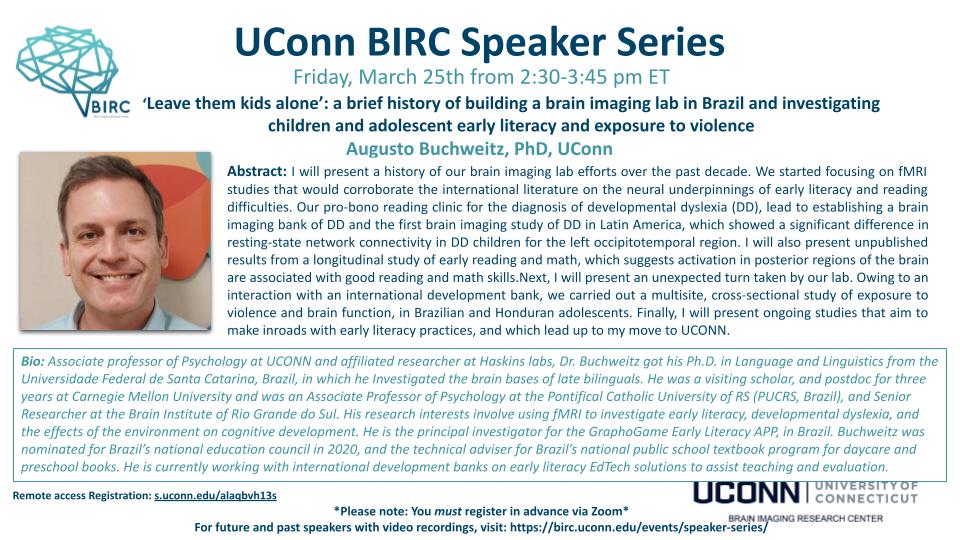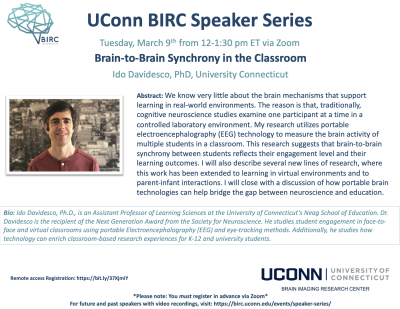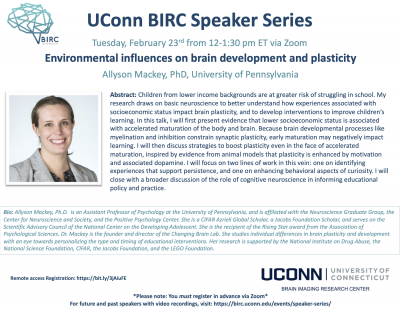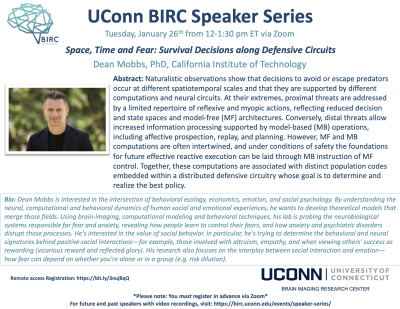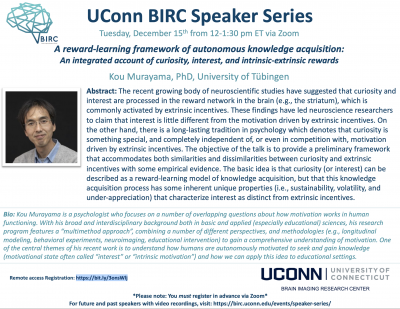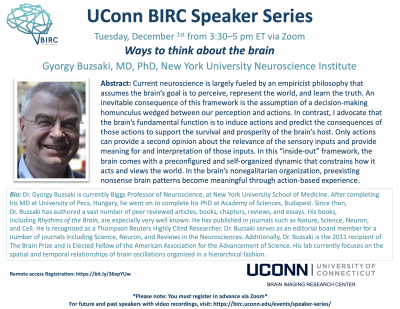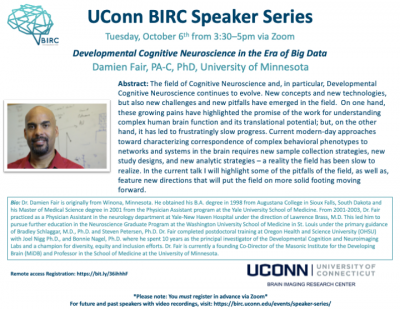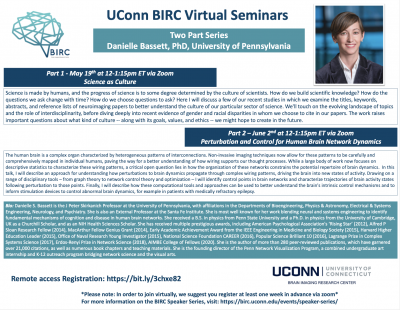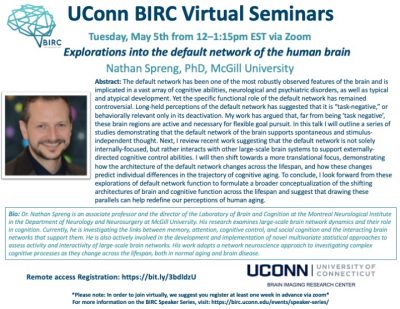The Brain Imaging Research Center (BIRC) is soliciting your suggestions for speakers to fill remaining openings in the 2022-2023 BIRC Speaker Series. The BIRC supports research using human brain and whole-body magnetic resonance imaging, electrophysiology, and non-invasive stimulation. The past speaker series has featured renowned speakers working broadly in magnetic resonance imaging, cognitive neuroscience, and related fields. Suggestions may be submitted using this form at any time, but submissions received by July 11th will be given special consideration for the upcoming year. We welcome suggestions from all disciplines and career stages.
As always, we are particularly interested in speakers who introduce conceptual or methodological innovations that inspire UConn researchers to explore new research directions and applications in magnetic resonance imaging, physiology, and brain stimulation, and develop interdisciplinary collaborations.
